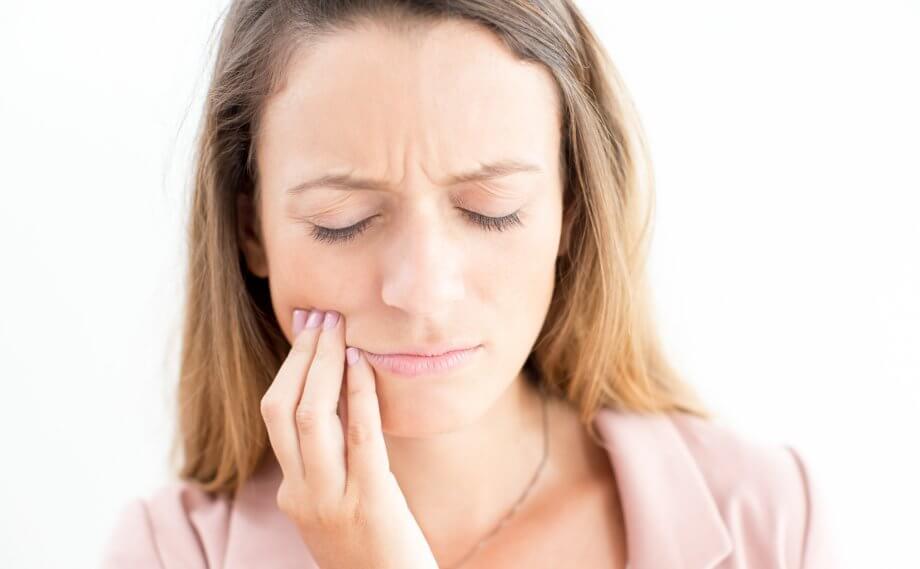Have you recently noticed that your teeth are sore or sensitive to cold? Do your jaw muscles hurt in the morning? Does your face ache?
You’re not alone. As a result of the stress of our current circumstances, many of our patients are noticing symptoms that they haven’t had before. In particular, a significant uptick in facial muscle pain and temporomandibular joint dysfunction (TMJ).
Many transient cases of TMJ can be managed by simply being more aware of your own behavior (such as clenching during the day), and taking measures such as eating a soft diet, massaging affected muscles, and applying a warm compress at night. However, there are times when the symptoms arise or are exacerbated by discrepancies in the way that your teeth come together.
The temporomandibular joint is a actually highly complex set of two joints that connect your jaw to your skull. Any symptoms related to the function of the joint are collectively referred to as TMJ syndrome and may include the following:
Common symptoms of TMJ include:
- Headaches with any pattern or consistency. For example, waking up in the morning with a headache, or every afternoon while you are working, or after exercising.
- Increased cold sensitivity or spontaneous throbbing
- Aching, tired feeling in your facial muscles
- Pain or tenderness in your face, jaw joint area, neck and shoulders, and in or around the ear when you chew, speak, or open your mouth wide
- Clicking, popping, or grating sounds in the jaw joint when you open or close your mouth — or when chewing
- Difficulty chewing or a sudden onset of an uncomfortable bite – as if the upper and lower teeth don’t fit together properly
What causes TMJ?
Common causes of temporomandibular joint disorder include excess stress on the joint associated with clenching or grinding teeth. The effect of the excess stress on the joint may be exacerbated by discrepancies in your bite.
Bruxism is a condition that occurs when you unconsciously clench or grind your teeth during sleep. It is often associated with morning headaches or a feeling of tiredness in your jaw upon waking.
While stress-induced TMJ is the most common, TMJ facial pain may also result from a variety of other factors, such as genetics, arthritis or jaw injury.
You don’t have to live with TMJ pain
In most cases, the pain and discomfort associated with TMJ disorders is temporary and may be relieved with self-managed care or nonsurgical treatments.
You may be able to help yourself by following some simple steps:
- Make a conscious effort to avoid clenching your teeth during the day. Lips together and teeth apart should become your mantra!
- Try a soft diet.
- Avoid chewy foods, like bagels or gum.
- Apply a warm compress to the jaw muscles before bed to help relax the joints.
Some of the worst strain on your jaw may occur while you sleep, causing these issues to be particularly noticeable in the morning. A custom-fitted dental night guard is a helpful appliance for treating TMJ disorder, because it can eliminate discrepancies in your bite that may trigger your symptoms and will effectively simulate a perfect bite.
If you have tried the above recommendations and symptoms persist, you may need to see us for an evaluation. Please call the office at 978 664 3141 or complete the Contact form here: Contact Us
Photo attribution: Kate Mango Star, Freepick.com

